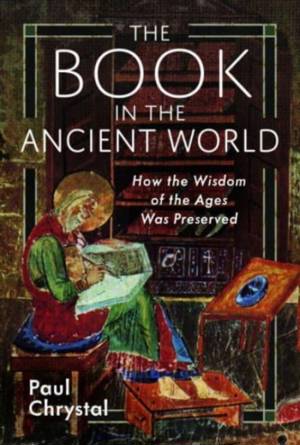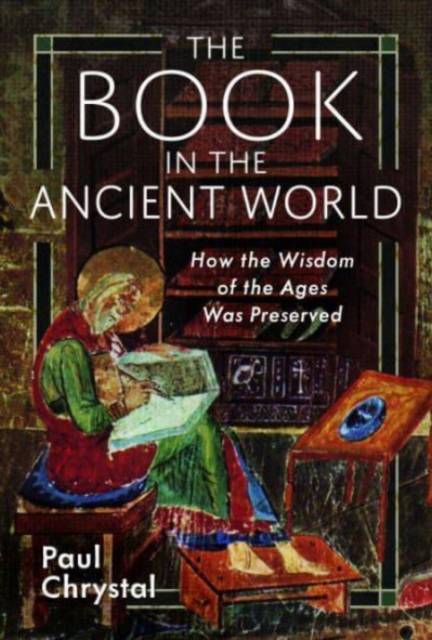
- Retrait gratuit dans votre magasin Club
- 7.000.000 titres dans notre catalogue
- Payer en toute sécurité
- Toujours un magasin près de chez vous
- Retrait gratuit dans votre magasin Club
- 7.000.0000 titres dans notre catalogue
- Payer en toute sécurité
- Toujours un magasin près de chez vous
The Book in the Ancient World
How the Wisdom of the Ages Was Preserved
Paul Chrystal
Livre relié | Anglais
34,95 €
+ 69 points
Description
Explores the history of ancient books as artifacts, their role in transmitting knowledge, and their impact on future cultures.
This is both a history of books as objects and artifacts but also a social history about the use and transmission (or restriction) of knowledge in the ancient world. The author sets the scene by discussing the invention of writing and the development of the various alphabets. He then surveys the book's precursors, the evolution of writing materials through clay tablets, papyrus scrolls, parchment, wooden and bronze tablets, culminating in the codex - the book as we know it.
The author then takes us on a fascinating 900-year journey through the classical world, describing the recording, preservation and dissemination of knowledge and literature for the edification, delectation and systematic instruction for contemporary and future cultures and societies. He looks at the processes of textual transmission of notable books and explains how that portion of the great literary and scientific writings of Greece and Rome that survived (often a matter of pure chance and only a small portion) informed and influenced later cultures through the Middle Ages, Renaissance and right down to the present day.
Along the way Paul Chrystal explores a number of important but often neglected genres of ancient books, such as propaganda, paradoxography and the publishing of specialist military, scientific, technical and medical manuals, as well as catalogues of famous men and heroic women. The ways Greek and Roman authors described their work and the functioning of the great libraries and the Classical equivalent of the publishing and bookselling trades, in which public readings (recusatio) played a crucial part, are also examined.
This is both a history of books as objects and artifacts but also a social history about the use and transmission (or restriction) of knowledge in the ancient world. The author sets the scene by discussing the invention of writing and the development of the various alphabets. He then surveys the book's precursors, the evolution of writing materials through clay tablets, papyrus scrolls, parchment, wooden and bronze tablets, culminating in the codex - the book as we know it.
The author then takes us on a fascinating 900-year journey through the classical world, describing the recording, preservation and dissemination of knowledge and literature for the edification, delectation and systematic instruction for contemporary and future cultures and societies. He looks at the processes of textual transmission of notable books and explains how that portion of the great literary and scientific writings of Greece and Rome that survived (often a matter of pure chance and only a small portion) informed and influenced later cultures through the Middle Ages, Renaissance and right down to the present day.
Along the way Paul Chrystal explores a number of important but often neglected genres of ancient books, such as propaganda, paradoxography and the publishing of specialist military, scientific, technical and medical manuals, as well as catalogues of famous men and heroic women. The ways Greek and Roman authors described their work and the functioning of the great libraries and the Classical equivalent of the publishing and bookselling trades, in which public readings (recusatio) played a crucial part, are also examined.
Spécifications
Parties prenantes
- Auteur(s) :
- Editeur:
Contenu
- Nombre de pages :
- 336
- Langue:
- Anglais
Caractéristiques
- EAN:
- 9781399099189
- Date de parution :
- 30-05-25
- Format:
- Livre relié
- Format numérique:
- Genaaid
- Dimensions :
- 155 mm x 234 mm

Les avis
Nous publions uniquement les avis qui respectent les conditions requises. Consultez nos conditions pour les avis.






